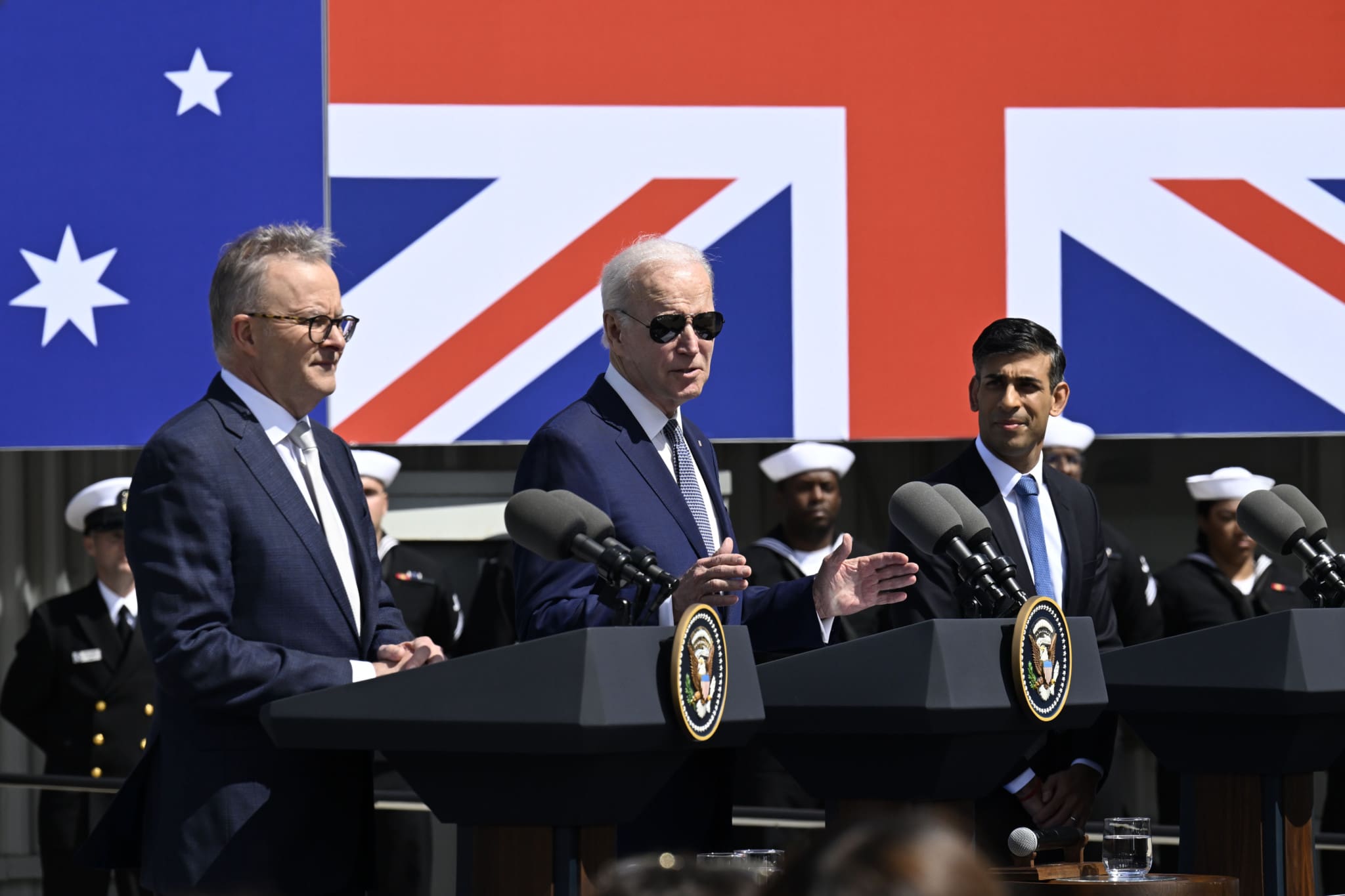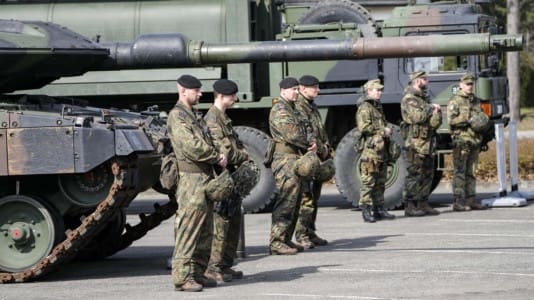Details of the AUKUS nuclear submarine project that will see Australia supplied with nuclear-powered submarines to counter the influence of China in the Indo-Pacific region were announced on Monday by the leaders of the United States, the United Kingdom and Australia.
At a press conference in San Diego, Australian Prime Minister Anthony Albanese hailed the agreement as “the biggest single investment in Australia’s defense capability in our history,” adding that it marked “a new chapter” in the relationship between the three countries.
Under the deal, the three countries will take progressive steps toward increasing the presence of Allied nuclear-powered submarines in the Australasian region.
Australia will agree to purchase three U.S. Virginia-class submarines in the early 2030s and has the option to purchase two more, while Australian navy officials will visit U.S. and U.K. submarine bases to be taught how to operate the nuclear-powered submarines.
Over the next few decades, an agreement has been reached for Australia to eventually receive its own nuclear-powered submarines, which will be designed and built in Britain using the U.S.’ elite nuclear propulsion technology.
Furthermore, the U.K. and the U.S. will operate their own nuclear-powered submarines in the region starting in 2027. This will involve three U.S. submarines and one U.K. Astute-class submarine, which will operate on a rotational basis.
[pp id=22480]
U.S. President Joe Biden was keen to clarify that the submarines are nuclear-powered and will not be armed with nuclear weapons.
“Forging this new partnership, we’re showing again how democracies can deliver our own security and prosperity… not just for us but for the entire world,” he told reporters.
The plan is expected to cost Australia in the region of A$368 billion ($245 billion) over the next few decades.
The agreement, first reported back in 2021, was a blow to France, which had a previous agreement with Australia to supply 12 diesel-electric submarines in a €56 billion contract. At the time, France’s then Foreign Minister Jean-Yves Le Drian called the decision by Australia to repudiate the contract “a stab in the back.”
China was quick to respond on Tuesday to the deal’s announcement, accusing the Anglosphere trio of embarking on a “path of error and danger.”
“The latest joint statement from the U.S., U.K. and Australia demonstrates that the three countries, for the sake of their own geopolitical interests, completely disregard the concerns of the international communities and are walking further and further down the path of error and danger,” said China’s foreign ministry spokesperson, Wang Wenbin.
[pp id=18148]
British conservatives hailed the decision as a clear example of the country returning to its historical alliances and drifting further apart from Europe after Brexit.
Conservative commentator Nigel Farage told Sky News Australia: “In terms of geopolitics, this is the U.K.’s first step back on the world stage, and it’s highly appropriate that it’s with Australia.
“You guys were the first to really wake up to the potential threat that China poses, so the fact we are doing this, the Americans are recognizing the geographical significance and trustworthiness of Australia as an ally, is good. The only (thing) I would have is that this should have happened 10 years ago.
“And by the way, they’ll be miles better than that rubbish the French were selling you, those old diesel subs that are pretty useless in the modern world. I know Mr. Macron hates the AUKUS deal, which is an even bigger reason for loving it.
“So better late than never, but in terms of the global positioning of the U.K. and Australia, cementing that bond with America regardless of what we think of Biden as president, I think we should all welcome what’s happened in the past 24 hours,” he concluded.






